Question – What do three of the last four world number ones have in common with County Cavan?
Answer – They’re all working with Irish short game coach, Gareth Raflewski.
For a nation quick to hop on a home success story, particularly in sport, you’d think the short game expert behind the current world number one women’s professional golfer would be a household name on Irish shores. Then again, with a name like Raflewski, you can understand why the Irish haven’t been so quick to claim this one as our own.
“It’s actually O’Raflewski,” short game extraordinaire, Gareth Raflewski jokes of a name not synonymous with Irish folklore. His grandfather was a Polish RAF pilot who escaped to Ireland during the war and met his grandmother before settling down in the North of the island. It was here that Gareth’s love of golf developed on the fairways of Omagh GC.
He showed potential as an amateur, competing across the interprovincial scene and championship circuits but he was a dedicated student too and travelled to Liverpool before graduating as an engineer. Yet, despite his degree in his back pocket, a steady 9-5, healthy income and a shiny company car in his future, his grá for golf was something Raflewski was powerless to ignore.
“When it’s in you and you have a calling to do something – I just always wanted to be involved in it so if it wasn’t going to be around playing, it was going to be coaching or something else,” he said.
“It’s in my blood and it wouldn’t have mattered how much money I was going to be making as an engineer, I still would’ve wanted to pursue the golf. I had my parents looking at me sideways saying, ‘are you sure about this?’ I had my boss at the engineering company telling me ‘we have a great project for you and we’re going to bump you up, you’ll have your own car, expense account, everything’ and I thought, ‘my god, if I start getting any more I’m never going to leave so I had to pull the trigger and make a move’.”
Move he did. In fact, Raflewski bounced around like he was trapped inside a pinball machine between mini-tours, the EuroPro Tour, the then Nationwide Tour and further afield on the Canadian Tour, grinding away in the cash games that have claimed the lives of many a tour pro.
“Every day I played I second guessed it,” he said of turning his back on the 9-5.
“When it’s going well, you’re like, ‘god, this was a good choice, I knew I should’ve been doing this’, and when it’s not going so well, you’re thinking, ‘what am I doing here?’ But as it turned out, that was the best thing for me.
“The struggles are real and when you’re working with good players, to be able to relate to how they’re feeling – be they a tour pro or a recreational player who’s just terrified about the monthly medal – it really helps.”
The game may have defeated him as a player but Raflewski’s experience of the grind coupled with his studious disposition paved the way for the twist in his career path that would ultimately inform the leading coach he is today.
“I had no idea what I was doing as a young pro,” he recalled. “I thought that time equalled better. I thought, if you put it in 8 hours a day and put it in, day after day after day, things will be better. It made sense.
“I often hear a lot of players say, ‘if I just had the time to practice, if I just had more time to go out and work on my game I’d be so much better’, but the truth is, it’s not time, it’s the quality and the information that’s going to make the biggest difference.”
It was still a gamble – there was no evidence to suggest the life of the teaching pro would yield more fruit than the touring one– but Raflewski had already proved he wasn’t afraid of rolling the dice and entered the competitive cauldron of coaching believing he could stand out amongst the crowd. He moved to Canada and despite an intimidating list of coaches plying their trade on that side of the Atlantic, a bit of luck and a bunch of motivation meant there was no looking back.
“At that time moving to Canada, Sean Foley [former coach to Tiger Woods] was an hour down the road and there were a number of really great coaches near me and I just thought, I still want to do this here. I got tell that there was a club looking for an assistant pro, a really nice high–end private club so I met the pro and said obviously I’d work as an assistant – I want to get my foot in the door – but I want to coach, that’s what I want to pursue.
“They said ‘Gareth, I don’t think our members are into that, they don’t take lessons’. I think three years later I was doing about 12-1500 lessons in a summer season! At the end of the day, if you give people what they’re looking for and you lay it out for them, people are going to come and if you get results – whether they’re Tour players or the Club Champion – if you make someone better, you’re going to get busier and that’s just it.”
Raflewski moved home briefly after a successful first spell in Canada and even without a driving range at Omagh Golf Club, his Midas touch was paying off with the local swingers. He’d sit out by the 16th tee, offering his services for three -hole playing lessons with the members, all the while developing his fascination with on-course coaching that would serve him so well today. It was his love of teaching combined with the immediate feedback of testing that teaching in a playing environment that spurred Raflewski onto his ultimate ambition of coaching the world’s best players.
He returned to Canada and although he enjoyed success with PGA Tour names like Kiradech Aphibarnrat, Michael Gligic and Hudson Swafford, Raflewski’s big break was to come in the women’s game. He joined forces with LPGA Tour pro, Jane Park and his influence was almost instant as Park doubled her money on Tour the following year. Suddenly, the same formula that saw Raflewski’s timetable book up with lessons at members’ clubs in Canada and Omagh was translating to the fairways of the most elite Tour in women’s golf.
Park’s friend and fellow LPGA Tour competitor, Tiffany Joh entrusted Raflewski to improve her putting and soon doubled her season earnings too, but it was when the Northern Irishman was enlisted to oversee Thai talent, Moriya Jutanugarn that things started to truly skyrocket.
“Moriya was earning 80 or 90 grand the season I started working with her and the last three or four years she’s been averaging at least a million,” he said.
Unsurprisingly, her sister Ariya, also a budding LPGA star at the time wanted to work with the man who was proving a real differential in Moriya’s upturn in fortunes.
“Ariya was 66 in the world in January 2016 and at the end of the year she was number one and won 6 times on Tour that year including the British Open,” Raflewski says.
And with that, in the blink of an eye, the relatively unknown professional from Omagh Golf Club had gone from three hole playing lessons back home to the short game master largely responsible for Ariya Jutanugarn reaching the pinnacle of the women’s game. Ever pinch yourself?
“You’re always doing that there,” he says, his Irishness mightily intact. “At the end of the day, there’s so many great coaches out there but it’s the connection. With information now, everyone’s got all the info now but it’s the ability to communicate that with the student to get the best out of them that is really the art of coaching.”
How he builds those connections, well he credits that to his Irish upbringing and tricks of the bar trade that made him a popular figure amongst frequenters of the local high stools.
“I learned it from a barman,” he explained. “He taught me that when someone walks into the bar, you sit down and get their name and find out a bit about them and write all the info down including their drink in a little notebook. Then when they come back, if you don’t remember their name, you run into the back and get the notebook and run out saying, ‘hey John, how’s it going? Pint of Guinness again is it?’ and they’re like, ‘Jesus, how’d you remember?’ and it’s, ‘of course I wouldn’t forget you, how’s little Johnny and Mary?’
“I think it’s the Irish in me!”
Raflewski insists it’s not that he’s trying to trick anybody, rather he’s making the effort to find the all-important connection. It’s a vital tool that he applies to his own students, leaving no stone unturned to get the root of a player’s character so he can then extract every ounce of their talent.
“I will research what they like, I will ask their caddie what they’re into,” he continued. “It can be something as stupid as a sitcom and I’ll sit and watch a couple of episodes that the player might be into. Tiffany is into surfing so I spent some time learning about surfing, some different terms and moves so that I could start talking to her about that and that would get her excited and engaged for the session.”
“It takes seven interactions for someone to trust you so when I know I want to work with someone on Tour – say Lydia Ko – where everyone else would walk up and say, ‘hey, I could really help you with your game’, I knew I had to make a number of pitstops along the way before we could even think about introducing that happening. It’s like going to the bar to pick up a girl, the more aloof you are, the more chance you have of doing well!”
It’s a system that’s contributed to Raflewski’s lofty reputation on the LPGA and PGA Tours, both as a world class coach and a trusty confident, often spotted spending hours on the practice green during tournament weeks shooting the breeze with the game’s biggest names about all things life. His current stable of stars includes world number one, Jin Young Ko and through his work with Jin, and indeed three of the last four female number ones, the Northern Irishman has seen first-hand what it takes to become the best at your craft.
“Her perspective on life amazes me,” he said. “You can have a healthy obsession with something and if you don’t really have other interests, then that’s fine because at the end of the day, you’re doing something you absolutely love. But if you’re an obsessive person and you’re burnt out by it, you probably need to find some kind of outlet that’s going to help you.
“The person that’s well-balanced tends to be able to pick golf up and put it in a box – it’s like a toy you play with, ‘OK I’m done with it now and I’ll come back to it tomorrow’. That’s Jin.”
Raflewski at PGA National Slieve Russell
And so, it’s particularly exciting that a man with such pedigree at just 39 years young has decided to share his short game wisdom with the island of his birth. The Raflewski Performance Academy is coming to Europe and specifically to PGA National Ireland at Slieve Russell where Gareth will link up with Head Professional, Gordon Smyth.
Raflewski has always wanted to do something closer to home but exactly what remained a mystery until off the back of some training aids he launched last year, more opportunity presented itself. Mutual friends put Gareth in touch with Smyth and the pair instantly clicked, swiftly exploring ways they could work together.
“Gordon loved the idea of the Academy,” said Raflewski. “We brainstormed and I’ve always wanted to do another Academy somewhere but it’s very difficult because if you don’t have the right person to head the project and get it up and running the right way, it just falls flat.
“You also don’t know what people are teaching and how they’re treating people but after meeting Gordon, sharing my ideas and listening to his, we had no doubt that we could work together and get this project off the ground.”
What makes this different?
The result, Raflewski believes, is like nothing currently available to golfers on the island of Ireland. It’s been founded on three pillars; the studio, the short game area and the golf course and it’s the link between all three that will prove the big difference for golfers looking to improve their game like never before.
The journey will see players first avail of cutting-edge technology in studio, absorbing as much information as possible to take to step two.
“The studio is packed with the latest technology, from high-resolution cameras to a GC2 Quad launch monitor which will dial-in your wedges. We’ve the SAM PuttLab, Capto 3D Putting, Swing Catalyst Video – it’s really exciting stuff,” Raflewski says.
“We’ve spent a fortune on the flooring. A company called Wellputt is making it; it has two different speeds in different directions, basically a whole indoor system. With the weather in Ireland, if we get a bad day, we don’t want someone travelling to Cavan and getting washed out so being able to go into the studio was very important to us.
“The green is literally designed with eight different exercises so it’s really going to hit on most of what we need to do with putting. Plus, with the brilliant outdoor facilities on-site at Slieve Russell already, it’s nice that we can put the shutter up and hit outdoors or vice versa when necessary.”
From the studio, players will take their new-found information to the multiple short game areas on site, training their skills with drills and repetitions before putting this practice into play on the golf course.
“We want to take players out onto the golf course and put them in a match situation and say, ‘what do you do here?’ Raflewski continues.
“We’re taking a look at specific shot scenarios that will arise when you’re playing for real and if you don’t have the skill set to pull them off, you need to go back into the studio and learn the movement patterns that are needed to create that type of shot.
“Then you’ll go to do practice area again, hit lots of balls doing just that and we’ll go back onto the golf course and see if that work has made a difference to whether or not you can produce a shot you couldn’t one hour ago.”
And don’t allow the professionalism of the concept intimidate you into thinking the studio is only designed for the elite player. Yes, it will attract some top talent looking to maximise their learning but the technology is designed to allow anyone, professional or amateur, the opportunity to have a full understanding of their short game.
“This is for everyone,” Raflewski says. “I would assume it would attract pretty good players but I love helping people, whether they have the yips or chipping woes or they’re just terrible putters in general, if people know the scope for improvement that we’re capable of achieving at the Academy, then we believe that the hunger will be there amongst players to put the time in to access it.
“The least amount of time they can spend with us is 90 minutes but we’re hoping they’ll spend time on the short game area and the Academy course and put the exercises to use, see if the drills are clicking and get the most out of the day. You might have only paid for a 90-minute session but we really want you to stay and maximise your time and ultimately your with us – that’s the difference.”
Indeed, Raflewski is hoping the Academy can inspire a cultural shift in terms of golf coaching on the island in general, something that would not only greatly benefit the wider industry that has taken a massive hit during Covid-19, but every player too.
“Our seasons are so short and you see it so often as a coach, you have someone come in, you conduct a good lesson and they say, ‘I’ll see you in two weeks’. That’s just not working. I’m thinking, ‘why do I have so much success with my pros and less with my amateurs?’ It’s because I see the pros so much more.
“A 90 minute lesson is going to be good but it’s not really going to make you any better. You’re just going to have information. There’ll be times through the day, even if Gordon or I are not directly teaching, where we’ll be walking around making sure students are still doing the right things so we have that touch point that the players can access and if they’re not, we’ll be able to catch it and fix it there and then.
“So, I think it will do well. We believe the appetite is there for players to travel and stay at the Slieve Russell and spend a couple of days working at their game. That’s what’s going to make them better. It’s changing that culture to make people know that this is how you’re going to have to do things if you’re serious about getting better.”
For more information about Gordon and Raflewski Golf, visit https://raflewskigolf.com/
To keep up with the latest from Gordon and Gareth, you can follow them on Twitter @GordonSmyth / @Raflewski

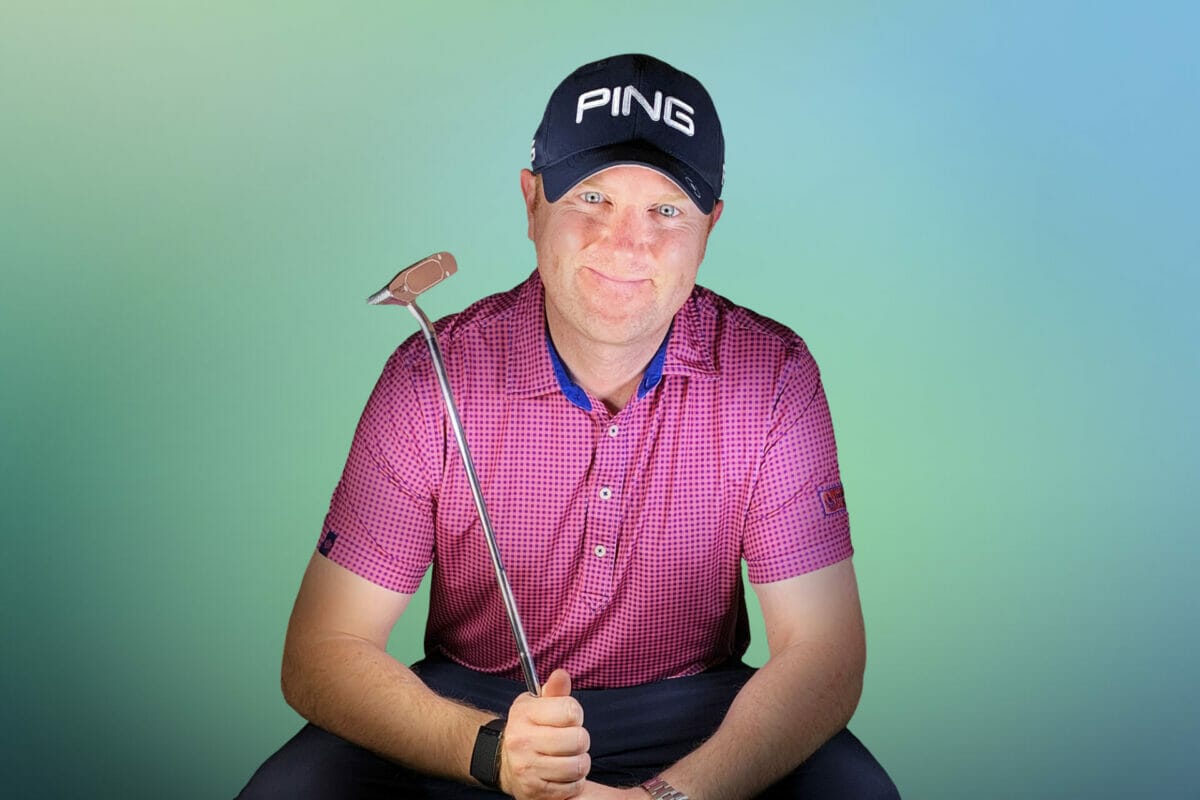

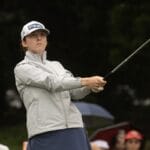

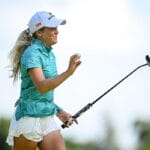
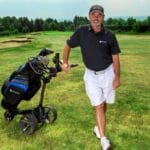

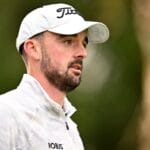


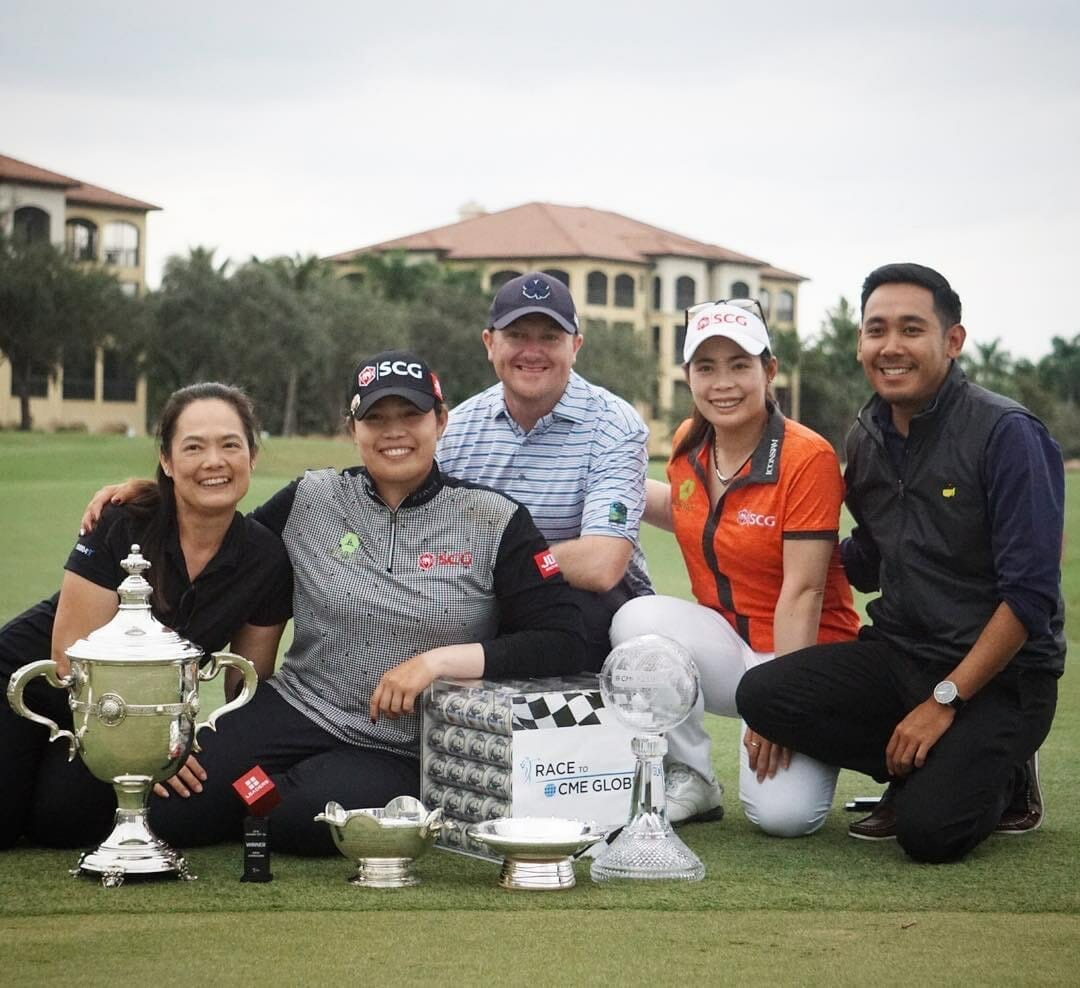

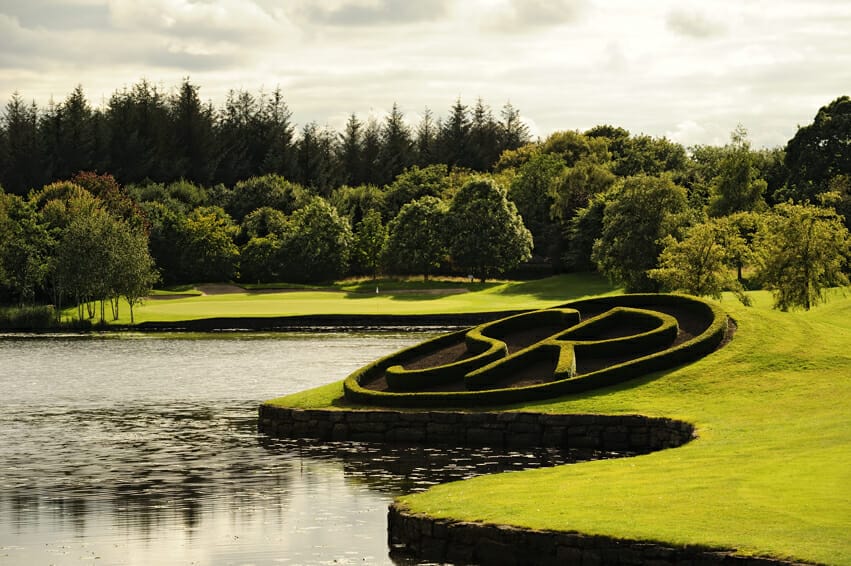





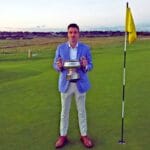






Leave a comment